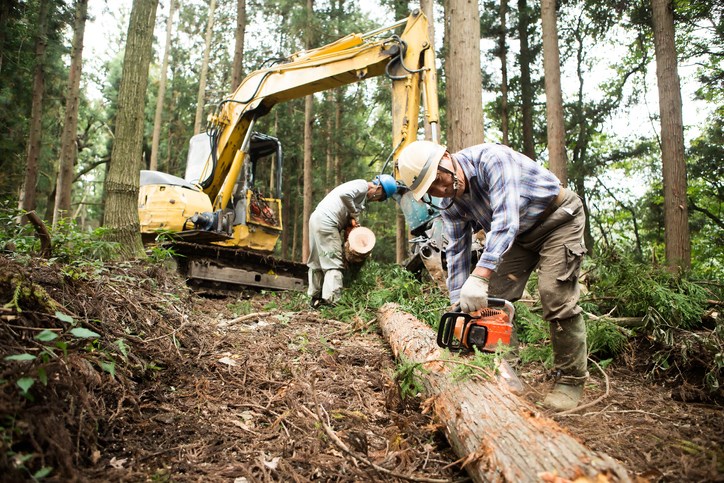The provincial government has established agreements with three Northern Manitoba First Nations regarding forestry development and revenue sharing.
A memorandum of agreement was signed by the province and Norway House Cree Nation on Aug. 2, with the government committing to creating a tree planting program to train and employ youth and community members and returning up to 45 per cent of revenues collected from timber dues to the First Nation. A multiphase traditional land use study will be led by NHCN, with priority given to the area and interests fo the First Nation. Timber will also be provided for NHCN’s sawmills to support the goal of building approximately 500 homes in the community.
“This agreement is a resolution to controversial forest harvesting that occurred previously within the area,” said NHCN Chief Larson Anderson. “The agreement to replant the forest, define financial contributions, establish a mutually acceptable long-term plan for the sustainable development of the area and outline a package of employment opportunities will allow Norway House Cree Nation to benefit from the resources in its traditional territory. The Manitoba government has agreed to ensure appropriate consultation in future activities and share in the financial benefits of future resource development. Environmental stewardship of our traditional territory is essential for appropriate environmental, social and governance economic activities in Northern Manitoba.”
Manitoba’s government says it spent $200,000 last year to improve the viability fo Manitoba’s forest sector by encouraging more Indigenous participation in the forestry economy.
“This agreement is a first step in ensuring First Nations benefit economically from resource development on their ancestral lands and play an active role in resource management that benefits our province as a whole,” said Natural Resources and Northern Development Minister Greg Nesbitt. “I see today as the beginning of a renewed relationship between Norway House Cree Nation and the Manitoba, working together to ensure our forests provide the values we have come to depend on, now and into the future.”
The same day as the MOA with Norway House was signed, the government signed a memorandum of understanding with Mosakahiken Cree Nation to share up to 45 per cent of timber dues harvested in proximity to the First Nation, retroactively to Jan. 1 of this year and running up until June 30, 2024 under a two-year pilot program.
“This revenue-sharing agreement will help with putting more homes, more jobs, more gatherings, and more services for our people that are dealing with drugs and alcohol," said MCN Chief Vincent Bercier. "As chief of Mosakahiken Cree Nation, I can see positive change happening for the community. This will educate all of us on what we need to work on moving forward. This is a first-of-its-kind agreement in Manitoba and I am proud that we are the first community to take pen to paper, but more proud that other First Nations have negotiated similar agreements.”
On Aug. 3, the province signed an MOU with Opaskwayak Cree Nation establishing a two-year forestry revenue-sharing program under the same terms.
“This revenue sharing concept has been talked about for years with our community and to see this finally come to action gives me hope as a leader," said OCN Chief Sidney Ballantyne. "Not only will the added revenue help with improving our services for our people, it will benefit both our community and our neighbours in Mosakahiken with added employment opportunities. This is a momentous occasion that shows the province intends to do things in a good way with First Nations people moving forward. This move also shows the willingness of Opaskwayak to work on other major agreements not just with the province but with any other governments and business sectors across the country and the rest of the world."
Negotiations on the agreements with MCN and OCN began earlier this year, the province said.
"For too long, Indigenous communities have not benefited from forestry operations on their traditional territories, and our government understands we must take concrete steps to correct past wrongs and advance reconciliation," Nesbitt said. "Our government is proud to sign these historic memorandums of understanding with Mosakahiken Cree Nation and Opaskwayak Cree Nation, which are the first of their kind for Manitoba. We look forward to engaging with other Indigenous leadership and nations, as Indigenous participation in the forestry sector is essential to ensure everyone benefits from Manitoba's resources."
Canadian Kraft Paper, Louisiana Pacific and Spruce Products Ltd. are Manitoba’s largest forestry operations, supporting approximately 1,450 jobs in Swan River and The Pas. Between 25 and 38 per cent of people employed by these companies are Indigenous, the province says.




